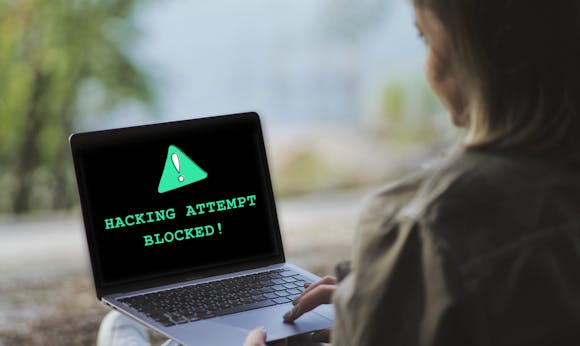
4 Email Hacking Horror Stories to Haunt You This Halloween 🎃
Have you ever been hacked? Recent statistics show that every 39 seconds there’s a new cyber attack somewhere in the world – and email is responsible for over 90% of them. This Halloween, we’ve collected some of the most horrifying real-life email hacking stories for you. And give you 5 tips to protect you from becoming the main character in the next hacking horror tale.
1. The email account is the nexus of the modern world
In the middle of an important work meeting, Rowenna Davis found out she had been the target of an email hack, after thousands of her contacts had been sent an email claiming she’d been held up at gunpoint in Madrid. What ensued was a battle to reclaim her online identity.
“Suddenly you're hit with an organisational bombshell – drop what you're doing; freeze your bank account; answer anxious calls; lose crucial, last-minute messages; miss work deadlines; irritate bosses; reset all email-based passwords; forget to pay e-bills; irritate friends who think you're ignoring them.
The realisation dawns that the email account is the nexus of the modern world. It's connected to just about every part of our daily life, and if something goes wrong, it spreads. On some level, your identity is being held hostage”, she told the Guardian.
2. Haunted by what hackers could’ve accessed through her email
Laura, the protagonist at the center of another hacking story, was also at work when she received a text confirming a $700 dollar bank transfer. To her horror, she found that both her bank and email account had been compromised.
Reader’s Digest writes: “It was about a week before things were back to normal with her accounts. Even after Laura regained access, she was haunted by what the hackers could’ve accessed through her email account. She spent many sleepless nights thinking about the social security number listed on tax document attachments and her home address that appeared in numerous emails.”
3. One email almost cleared out their life savings
Spoiler alert: This scary story has a happy ending, unlike the others.
After relocating to a new city, a couple was in the middle of buying a home, when things got weird. The escrow officer started asking for a money wire prior to the closing of the deal – something that is unusual at best. Feeling uncomfortable about the request, the couple continued to ask for alternatives before finally texting their realtor for clarification. He had no idea what they were talking about.
“I expanded the information in the cc line to see the full details, while the contact names matched with my realtor and everyone else involved, the emails were all slightly off. (...) But the person impersonating the title company knew my name, my personal information, and even the address of my new house from the initial email.
The whole time I was thinking about how if I hadn’t been so stubborn and so sure I didn’t want to wire money, I could have given away my life savings including the loan I took out from my retirement funds”, she writes about her experience on the Mozilla blog.
4. All online accounts and most precious work and personal assets were suddenly gone
On a Monday morning several years ago, Cristina Chipurici was hit by the unpleasant realization that several of her online accounts had been hacked by a disgruntled former employee! And not only did she lose access to her email accounts, social profiles and website databases: her credit card data was also taken from a linked account and used for shopping tech items.
“At 2:44 AM, he managed to break into my main Gmail account. He deleted all the emails. I had been using that account since 2003, so it had lots of important documents on it, but also emails with sentimental value. From there, he hacked into three other accounts that were linked to it: two more Gmail accounts and one Yahoo mail”, Cristina writes.
“It was a disturbing, unpleasant event, that caused me lots of grey hairs”.
How to protect your email
By the time you’ve finished reading this article, even more people will have fallen victim to a cyber attack. To make sure you don’t end up in your own hacking horror story, here are 5 steps to protect your email accounts from getting compromised in the future:
- Use a strong password and 2FA: A strong password really matters. Use a password generator to create secure, unique passwords using random characters and save them in a Password Manager. Set up two-factor authentication to add an additional layer of security to your account. Also, be sure to check and reset your privacy settings at least once a year.
- Share as little information as possible online: We create new data almost every hour of the day. Be conscious of how much information you are willing to share, especially online or on the phone. Ask yourself; do those companies really need my personal information for their service? When in doubt consider using fake data, setting up aliases, or don’t create the account at all.
- Use email encryption: Sending regular (unencrypted) email today is like sending a postcard, it leaves your sensitive data out in the open. With StartMail you can send encrypted emails to anyone, even if the recipient doesn’t use encryption. This ensures that other people can’t read your confidential messages, ever.
- Use aliases to protect your email address from scammers/data leaks: StartMail offers unlimited aliases - disposable email addresses that protect your identity when signing up for new online services. These aliases can help identify if and where your data has been leaked or sold and keep your main email address free of spam.
- Choose service providers with state-of-the-art security: With StartMail your data doesn’t ‘fly through the cloud’ but is securely locked on our own servers in the Netherlands. Our data center is ISO 27001 certified and complies with the EU’s GDPR, the world’s strictest privacy regulations.
Sign up for a 7-day free trial today, to make sure you won’t wake up to your own email hacking horror story!
If you have any technical questions about our product, please contact our Support team via support@startmail.com!
More from the blog


Why You Should Protect Your Emails – Keep Your Data Safe
Continue reading
Improve Privacy with Email Aliases – Keep Your Inbox Clean!
Continue reading
Understanding GDPR – Protecting Your Online Privacy
Continue reading